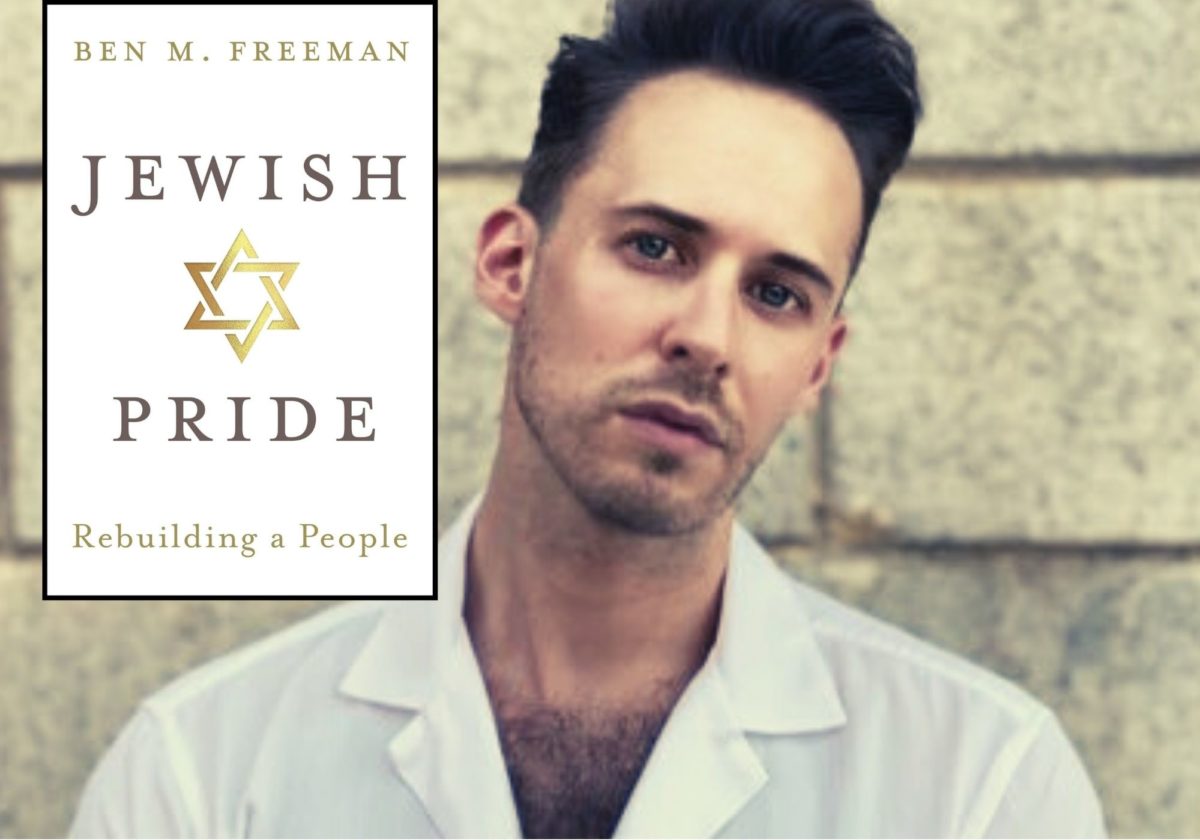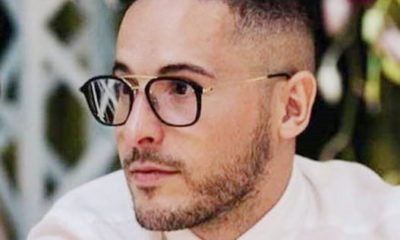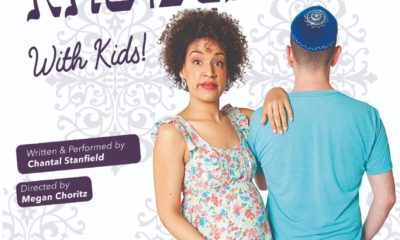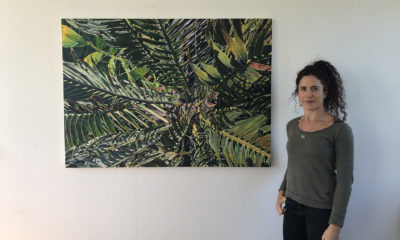
Lifestyle

Jews should be “inspired by gay pride”
Published
3 years agoon
You’ve heard of the gay pride movement, but have you ever considered that a similar concept could be applied to Jewish identity?
Internationally renowned educator Ben M Freeman’s first book, Jewish Pride: Rebuilding a People is inspired by his experiences with the LGBTQ+ (lesbian, gay, bisexual, transgender, queer) pride movement. It aims to educate, inspire, and empower Jewish people to reject the shame of antisemitism imposed on Jews by the non-Jewish world, as well as non-Jewish perceptions of what it means to be a Jew.
The book was launched in South Africa at an online event hosted by the South African Jewish Museum and the Jacob Gitlin Library.
Freeman is head of humanities at The Harbour School, an international school in Hong Kong. He is also a freelance lecturer at schools and universities, and leads educational webinars focusing on antisemitism to Jews and non-Jews alike from all over the world, helping them to understand the rise in antisemitism. He also works with companies and educational institutions, providing training and consultancy on issues related to inclusion and diversity.
Freeman was in conversation with Richard Freedman, the former director of the Cape Town Holocaust Centre and the South African Holocaust & Genocide Foundation.
Freeman described how he grew up in Glasgow, Scotland, one of only 5 000 Jews in the country. “My parents made a real effort to raise us as proud Jews. We went to the only Jewish primary school, and observed Shabbat and chaggim,” he said in his strong Scottish accent.
Meanwhile, realising he was gay, he has travelled “a long road to come to terms with that identity, and this book is based on that journey. If it wasn’t for that journey, I wouldn’t know the importance of the concept of pride, and the damage that shame can cause. I look at the pride movement, and I see the conversations that we need to have in our own community.”
The fallout around former Labour Party leader Jeremy Corbyn also galvanised him. “It was a moment of reckoning. I saw two responses in the British Jewish community: one was really impressive and embodied pride – rabbis put aside their differences to write letters to the press together, and people unified. But the second was the hangover of the ‘keep your head down’ syndrome. This has always been the unofficial policy of the Jewish community in Britain – don’t complain about antisemitism. [Community members] understand it’s wrong, but they have been socialised to keep their head down, so when it comes to it, they can’t advocate for themselves.”
One could say that the same “keep your head down” syndrome could be applied to the organised Jewish community during most of the apartheid era. Freeman feels strongly that Jews need to engage with our past, educate ourselves, and acknowledge that we have experienced generations of trauma that inform our actions every day. However, he notes that this isn’t about being victims. Rather, by understanding it, we can shake off shame and fear, and act in a more positive and proactive manner.
“We need to have public discussions on epigenetic trauma, generational trauma, and what it means to be a Jew in a post-Holocaust world,” he said. “We understand antisemitism intellectually, but often this is an emotional discussion, about our individual and collective self-esteem and mental health.” It’s a long journey, and it’s not going to be easy – each of us have to work on it every day.
Looking back, Freeman notes that when he was younger, he consciously tried to hide his Jewish identity. For example, when he was 16, he dyed his hair blonde. “When I went to university [in Scotland], it was a nightmare. I heard the same rhetoric as Corbyn. The difference was it was on the fringes, not in the mainstream British political system.”
He said the Black Lives Matter and #MeToo movements should inspire Jews. “We need that too, a version that fits our context. We need to be raising our voices and demanding to be heard. The black community isn’t asking to be heard, it’s demanding it. It’s the correct course of action, and we need to see it in our community too.”
He emphasises that when it comes to Zionism, “We need to reclaim both the concept and the word. I believe the non-Jewish world has appropriated and bastardised it. If you look at it, it’s a movement of self-determination for the Jewish people based on progressive values. As Jews, we understand that, but non-Jewish people describe it as white supremacy, colonialism, imperialism, and so on.” As Jews, we can disagree and debate what we want Zionism to look like, but “the non-Jewish world doesn’t get to tell us what Zionism is. It’s not their movement. It’s a Jewish concept defined by Jews.”
Freeman said Jews who have a white skin are often demonised by both the extreme left and right. “The extreme right see us as ‘shape shifters’ who look like them, can ‘infiltrate’ them, and bring them down from within. The extreme left say we symbolise whiteness. For them, that’s colonialism, oppression, and white supremacy. Both sides are framing us as what they see as the problem in the world or what they hate in the world.”
Others may accuse Jewish pride of being white supremacy, he said, but it’s not about taking others down, demonising or blaming others, and it’s about including Jews of every stripe.
The book includes stories from seven very different Jews. We must celebrate this diversity, but we can also note the similarities between our stories, Freeman said, emphasising that Jewish pride will come about when we heal our divisions from within. “We need to look at our racism, misogyny, and homophobia. I’ve seen Orthodox Jews ‘erase’ Reform Jews, and I’ve seen Progressive Jews demonise the Orthodox.”
Those who have a Jewish father, but not a Jewish mother, “are erased a lot”, Freeman said.
“Part of this healing is educating ourselves instead of picking arbitrary points in Jewish history to define our identity. I’ve called the book ‘rebuilding a people’ because we were a civilisation, a culture, a people, a nation before religion emerged – and the matrilineal definition of Judaism emerged even later,” he said.
“I respect the Halacha, but we also need to recognise this past. Just having this conversation is healing. I see the solution as our Jewishness. All Israel is responsible for each other, so we need to do better. And, the only people who get to define Jewish identity are Jewish people.”










